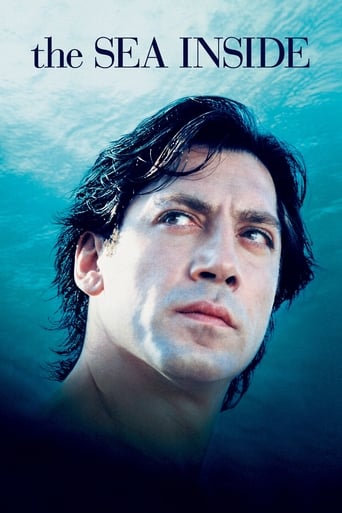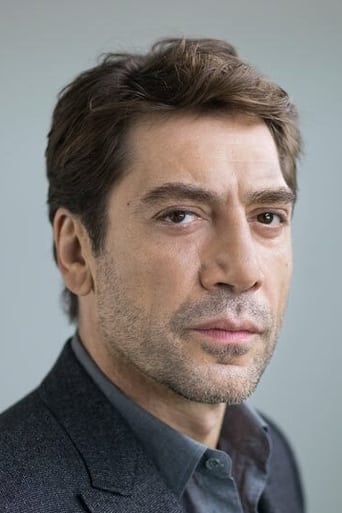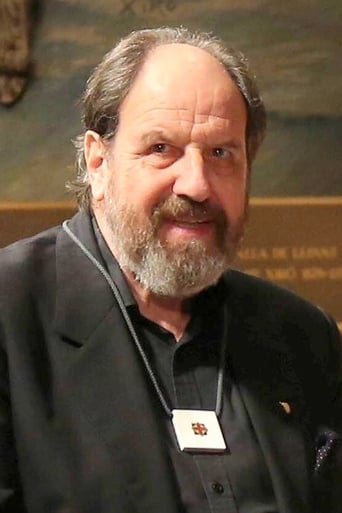tomcnult
The movie Mar adentro, released on November 14, 2004 by Alejandro Amenábar details the current life of Ramón Sampedro, a quadriplegic who was paralyzed a the age of twenty-six after diving off a cliff and breaking his neck on the ocean floor. Now, twenty-four years later at the age of fifty-four, Ramón is fighting for his right to die as he sees his own body as a prison for a man who once traveled the world and experienced a wholesome life. To him, life in this state has no dignity, and having the ability to die how he wants is a way for him to leave dignified. This movie briefly examines the issues of euthanasia and physician assisted suicide, showing some of the hardships that quadriplegics and others with chronically painful conditions experience. Having the opportunity to die how they want, in a painless way, surrounded by friends and family seems to be the goal for Ramón. He appears in court, supported by a lawyer, members of his family, and a few friends. He's petitioning the courts to change the laws, and re-examine the current ones that deny patients the right to die. Ramón planned on testifying, however, he was denied the ability to by the judges present.To this day, euthanasia is still illegal in Spain. Since 2002, patients have had the right to refuse medical treatment, such as respirators or chemotherapy, but euthanasia and assisted suicide is still a criminal offense. In the movie, religion is used as a focus in the statements of Ramón's lawyer. It was stated that even though Spain, as many other first-world countries do, claims to be a secular government, with a distinct separation between church and state. However, the lawyer claims, the law against euthanasia has its roots in religious ideas and morals. It is true, in fact, that religion still has a large influence over much of the legislation passed not only in Spain or the United States, but also in many countries all over the world. Even though many countries claim to be autonomous from religion, many lawmakers and leaders are swayed by personal beliefs and/or prejudices against certain forms of legislation, such as the right to die. For Spain, there are still elements of the Franco regime that are left over even after his death. Francoist values and beliefs regarding the merging of church and state and the influence of religion over laws and social norms are still very popular among a large portion of the population. In the movie, it is said that around 67% of the general population supported the idea of euthanasia.The film itself seemed to be very well done. The story was captivating and emotionally jarring. There were parts that were depressing, but overall there was a general uplifting feeling about the aesthetic and general feel of the film, which is something I can't quite explain or pinpoint an exact reason for. The acting was incredible. Javier Bardem, who played Ramón, and Belén Rueda, who played Julia, seemed to be stand outs for their acting. They did such a great job in conveying, what looked like, actual pain for what their characters were experiencing. On top of that, the grand wide shots of the scenery of Spain's mountains, rivers, forests and coasts were expertly wedged in between emotional scenes that really seemed to add something that was important for the characters. In some movies, there are scenes that focus on the wilderness or wide shots of scenery that seem to be out of place, but that was not the case in this film. The music was perfect for many of the scenes, and since Amenábar composed it, I think that allowed him to complete his artistic vision for the movie through the directing and composing of all aspects of his film.The message of the film was very clearly conveyed. It detailed examples of individuals who were experiencing great suffering, and had gotten to the point where they just wanted it to end. Euthanasia is a difficult topic, and there were some difficult scenes to watch in the movie, which I think is why it was so effective. There was very little sugar coating from Amenábar. However, I do feel the need to comment on the fact that I thought the issue was sensationalized in this movie. Understanding that this was a movie and not a documentary, the issue of suicide and assisted suicide is not something that is easy to talk about. On that note, though, I do not think that dramatic music and panning landscapes is the best way to provide people with exposure to the issue. It may start the conversation, but that conversation is going to be very biased and black and white towards one side or the other. With any issue that provides many moral and ethical dilemmas, everyone is going to have a strong opinion about it. I think that it is important to provide an understanding of the fact that it is not an easy decision or position to take, and instead of sensationalizing an issue like suffering and euthanasia, we need to have a serious conversation about it.Amenábar did a very good job of showcasing the point of view of the sufferer in the situation, and not just with people who are severely paralyzed. Julia, one of the other main characters, seems to be suffering from numerous strokes. She continues to have them, and every subsequent stroke provides more challenges, more physical therapy, more frustration, and more hopelessness. Understanding that people who are terminally ill are not just dealing with the physical limitations, they also have to deal with the sadness, the depression, and the feelings of hopelessness that comes with knowing that you won't ever get better. It is important to know that physical suffering can come with emotional suffering, and that emotional suffering can come with physical suffering, but also that one can arise without the other.






